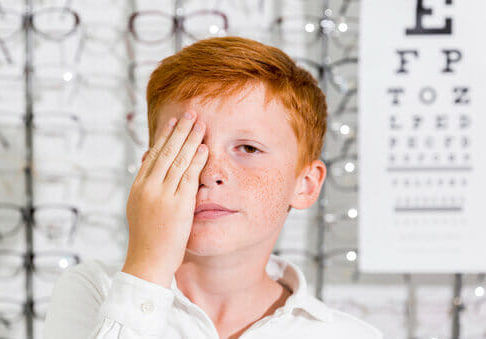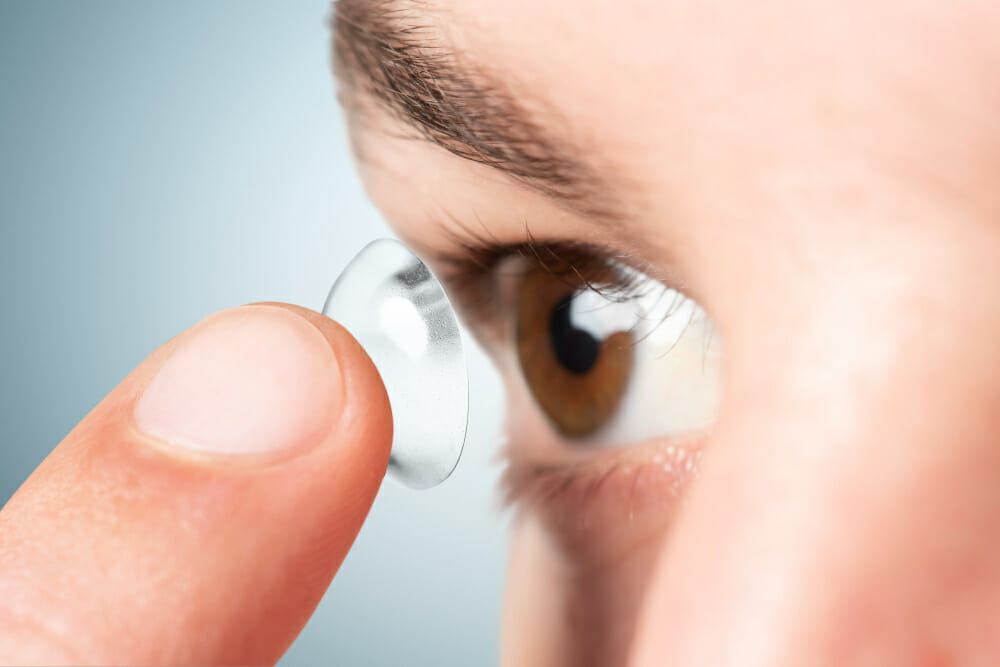What is Pink Eye?
Pink eye, known medically as conjunctivitis, occurs when there is inflammation of the conjunctiva, which is the clear membrane that layers the front of the eye and inside of the eyelids. This inflammation can be caused by a variety of reasons, including a bacterial infection, a virus or an allergic reaction. If it is viral or bacterial it is very contagious. Pink eye is one of the most common types of eye problems, and it’s extremely common amongst children, but it also occurs in adults.
Is there a way to avoid pink eye if someone else in my house has the infection?
Yes, there are definitely ways to avoid getting pink eye if one or more people in your house has the infection. You must frequently wash your hands, especially before touching your eyes, and avoid sharing towels, linen or anything that comes in contact with that individual’s eyes. Also, try to clean the surfaces that are frequently touched by the infected person. Although this does not guarantee that you would not get pink eye, it would surely prevent the spread of the infection to a large extent.
How long should I wait to return to work or school after pink eye?
If you don't have other symptoms such as fever, you may be allowed to go to school or work, but only with your doctor’s approval. It’s best to stay home if you’re able to, especially if your daily activities involve close contact with others since viral and bacterial pink eye is so contagious.
When the obvious signs of pink eye are gone, you can return to work or school safely. The symptoms typically go away between 3 to 7 days, but it could take longer. You could also consult with an eye specialist before returning back to work or school. A rough guideline of when you can return to school or work, depending on the type of pink eye, is as follows:
- For viral pink eye - after 2 days to approximately a week
- For bacterial pink eye - after 24 hours of taking prescribed antibiotics
- For allergic pink eye -no need to stay home as it’s not a contagious infection
Do I need to go to the doctor if I think I have pink eye?
Pink eye goes away on its own if it’s caused by a virus or an allergic reaction so in that case there is no need to see the doctor. If it’s an allergic pink eye, there are over-the-counter allergy medications that can help. If it’s bacterial pink eye, then you should get prescription antibiotic eye drops from your doctor. Antibiotics only help to cure pink eye if it’s caused by bacteria. If you have pink eye and you’re unsure of the cause, it is recommended that you see your doctor or eye doctor who can diagnose and help treat it.
You should see your optometrist if you have pink eye and any of the following:
- Pain in your eye(s)
- Light sensitivity
- Blurry vision, even after carefully wiping away any discharge
- Your symptoms aren’t going away or are getting worse
- If you have been prescribed antibiotic eye drops for bacterial pink eye and after 24 hours it’s not helping
- In addition to pink eye, you have another eye condition
- You’re immunocompromised
How long is pink eye contagious for?
Due to the fact that there are many different types of pink eye or conjunctivitis, it is very hard to determine the length of time a person with pink eye is contagious and how long they need to stay home. The best recommendation is to wait for the symptoms to resolve before going back to school or work which could be anywhere between 3 to 7 days. Symptoms include redness, irritation in the eyes and discharge from the eyes.
In schools or day care centers, children are typically in close contact with each other and that is the primary reason that the risk of the infection spreading from one child to the other is very high. The majority of schools would not allow the child to come back until the symptoms are cleared up. Be prepared to keep the child at home until the infection is completely resolved.
Pink eye that occurs due to a bacterial infection is usually treated through eye drops. If the child is on antibiotic eye drops for a minimum of 24 hours, then the child is not contagious anymore and may return to school.
If the pink eye was caused by a viral infection then you need to let it run its course as there is practically no treatment for it. Symptoms can be relieved through lubricating eye drops and warm compress. Children should not be sent to school until all the symptoms are resolved.
When pink eye is caused by an allergy then it is not at all contagious. Allergy eye drops can easily help in relieving the symptoms within a few hours.
What should I do if my newborn has pink eye?
If your newborn has pink eye, known as neonatal conjunctivitis, you should visit your doctor immediately. This type of pink eye can be caused by irritation, an infection or a blocked tear duct and the doctor can diagnose the cause. If it’s caused by an infection it could be dangerous and requires immediate treatment. Pink eye in a newborn can be a serious infection and should be treated instantly before it has a long-lasting impact on the sight of the child.
What treatments are available for pink eye?
Treatments for pink eye are primarily dependent on the type of infection you have. Some possibilities include:
- An antibiotic eye drop for bacterial infections
- Most cases of viral pink eye need to run its course and the body fights the infection off on its own. In severe cases of viral pink eye due to specific viruses, such as herpes simplex or varicella zoster, the doctor may prescribe an antiviral eye drop
- For allergic conjunctivitis - allergy eye drops containing antihistamine can be used
Try not to self diagnose yourself as soon as you see symptoms of pink eye. Schedule a consultation with your eye doctor to get the right treatment plan and find out the exact cause of the infection.
Should contact lenses be thrown out if I have pink eye?
Yes, disposable lenses that were worn by the individual before or while having pink eye or an infection, should be immediately thrown out. But if you have hard lenses, make sure you clean them properly before using them again.
Individuals who currently have pink eye are very unlikely to use lenses while they have symptoms of redness, itchiness, watery discharge etc. You can easily avoid eye infections if you use sterile contact lens solutions and store your contacts carefully. Washing and properly cleaning your hands before insertion and removal of lens is highly recommended.
What are the symptoms of pink eye?
Pink eye can be caused by allergies, bacterial infections or viral infections. The most common symptoms of pink eye or conjunctivitis may include one or more of the following:
- Tears
- Itchiness
- Pain in the Eyes
- Discharge from the eyes
- Swelling
- Blurry vision
- A feeling of a foreign particle in the eye
- Sensitivity to brightness or light
Will pink eye go away on its own?
Sometimes, pink eye does go away on its own, especially with viral conjunctivitis or allergies. Depending on the type of infection you have, it may take a few days to a couple of weeks for the infection to fully clear up. If it’s a bacterial pink eye, you need prescription antibiotic eye drops from your doctor. You can relieve the symptoms of all types of pink eye using over-the-counter artificial tear eye drops. Warm compress can help for viral and bacterial pink eye and cold compress is recommended for allergic pink eye. If you have a frequent condition of pink eye then you might want to consider a discussion with your doctor about the possible causes and the best preventive measures.
How long does pink eye last?
Pink eye usually lasts between 3 to 7 days. With some types of infections, the course of time could extend to a few weeks.
How can I prevent pink eye?
If a family member has viral or bacterial pink eye, then you need to be very careful as the condition can be extremely contagious. You should try to avoid contact or proximity with people who have pink eye until it is cleared up.
Some helpful precautions include:
- Refrain from touching the eyes or mouth
- Wash your hands properly
- Special care of cleanliness should be taken before insertion and removal of contact lenses
- Regularly wash clothes, pillowcases, towels etc.
- Restrict going out of the house if you or a loved one has pink eye
- Don’t share makeup or other things that come in contact with the eyes
- Swim goggles are recommended when swimming
- Practise good hygiene




